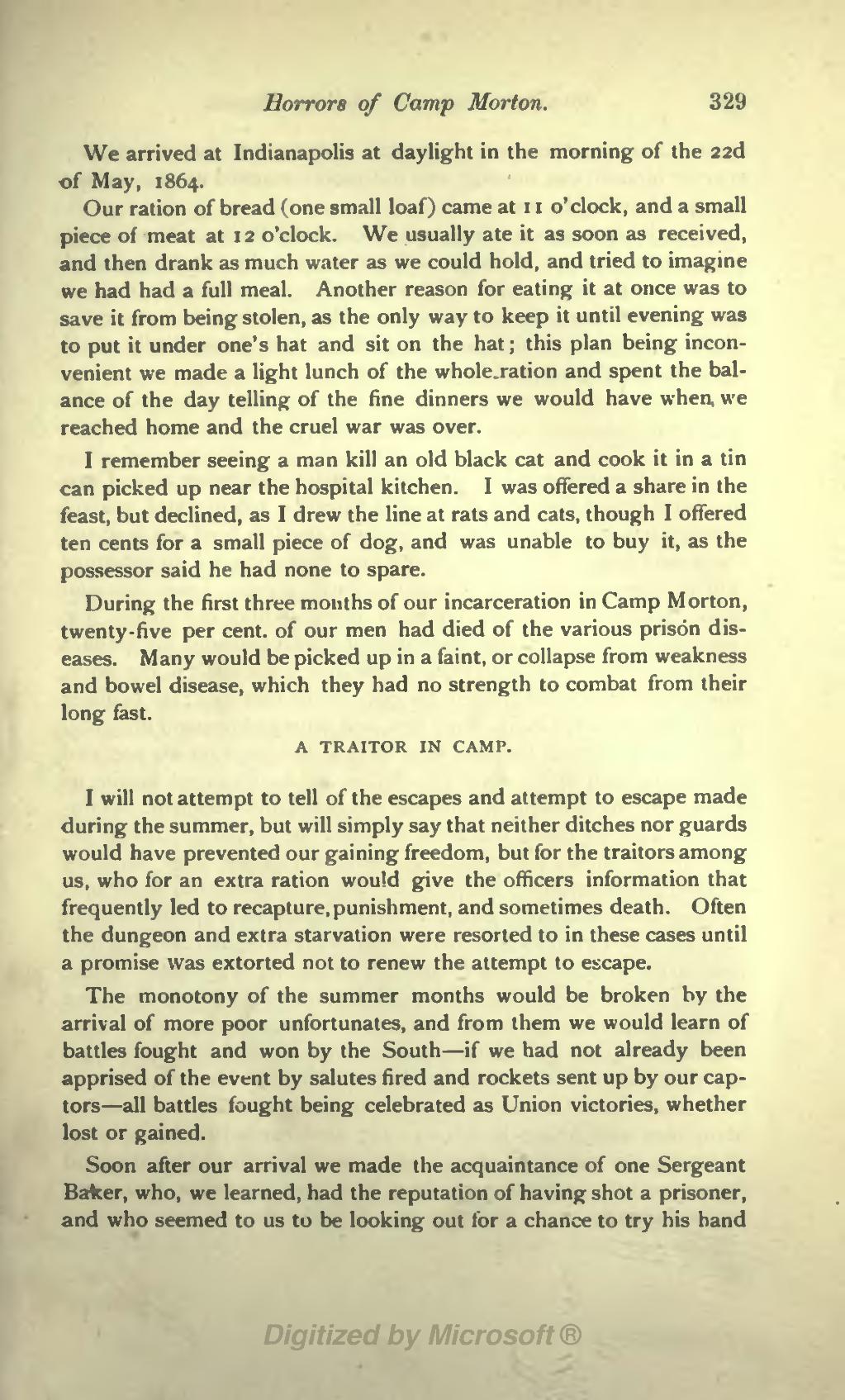Horrors of Camp Morton. 329
We arrived at Indianapolis at daylight in the morning of the 22d of May, 1864.
Our ration of bread (one small loaf) came at 1 1 o'clock, and a small piece of meat at 12 o'clock. We usually ate it as soon as received, and then drank as much water as we could hold, and tried to imagine we had had a full meal. Another reason for eating it at once was to save it from being stolen, as the only way to keep it until evening was to put it under one's hat and sit on the hat ; this plan being incon- venient we made a light lunch of the whole.ration and spent the bal- ance of the day telling of the fine dinners we would have when, we reached home and the cruel war was over.
I remember seeing a man kill an old black cat and cook it in a tin can picked up near the hospital kitchen. I was offered a share in the feast, but declined, as I drew the line at rats and cats, though I offered ten cents for a small piece of dog, and was unable to buy it, as the possessor said he had none to spare.
During the first three months of our incarceration in Camp Morton, twenty-five per cent, of our men had died of the various prison dis- eases. Many would be picked up in a faint, or collapse from weakness and bowel disease, which they had no strength to combat from their long fast.
A TRAITOR IN CAMP.
I will not attempt to tell of the escapes and attempt to escape made during the summer, but will simply say that neither ditches nor guards would have prevented our gaining freedom, but for the traitors among us, who for an extra ration would give the officers information that frequently led to recapture, punishment, and sometimes death. Often the dungeon and extra starvation were resorted to in these cases until a promise was extorted not to renew the attempt to escape.
The monotony of the summer months would be broken by the arrival of more poor unfortunates, and from them we would learn of battles fought and won by the South if we had not already been apprised of the event by salutes fired and rockets sent up by our cap- tors all battles fought being celebrated as Union victories, whether lost or gained.
Soon after our arrival we made the acquaintance of one Sergeant Baker, who, we learned, had the reputation of having shot a prisoner, and who seemed to us to be looking out for a chance to try his hand
